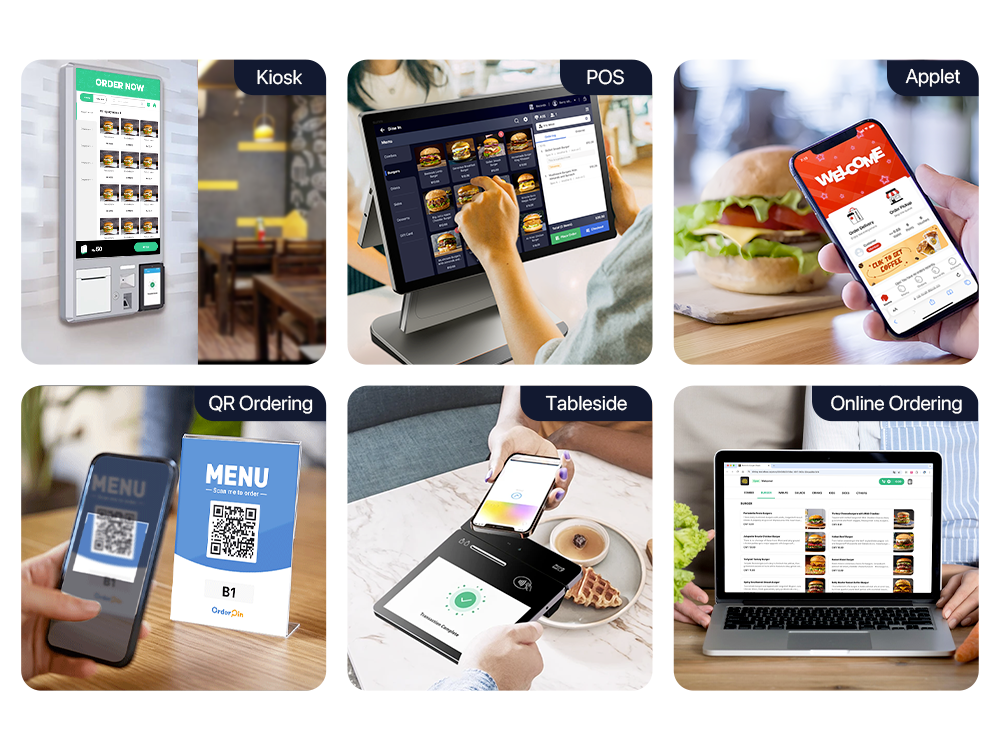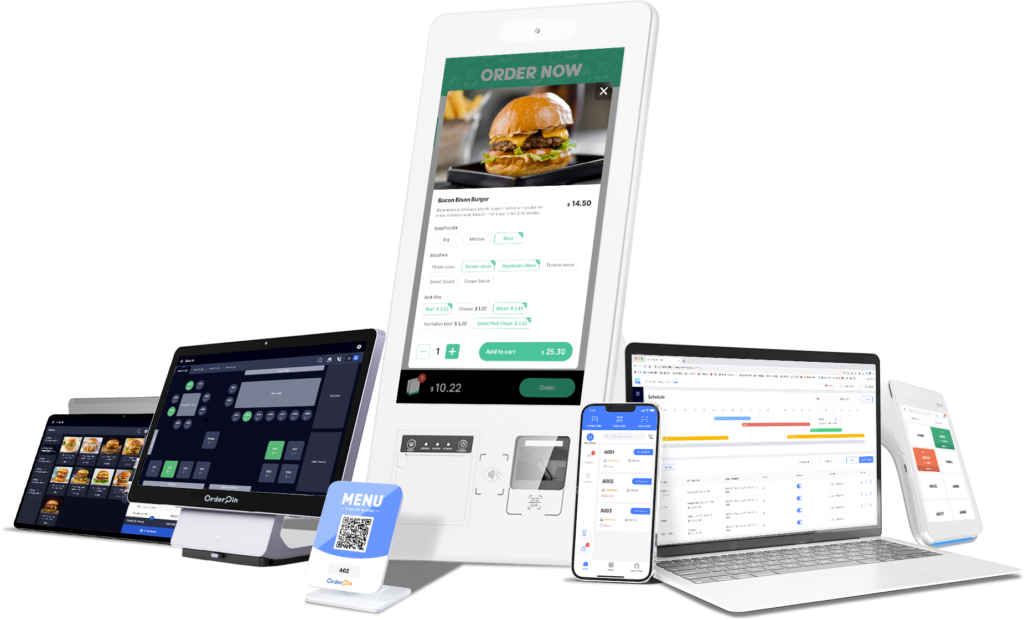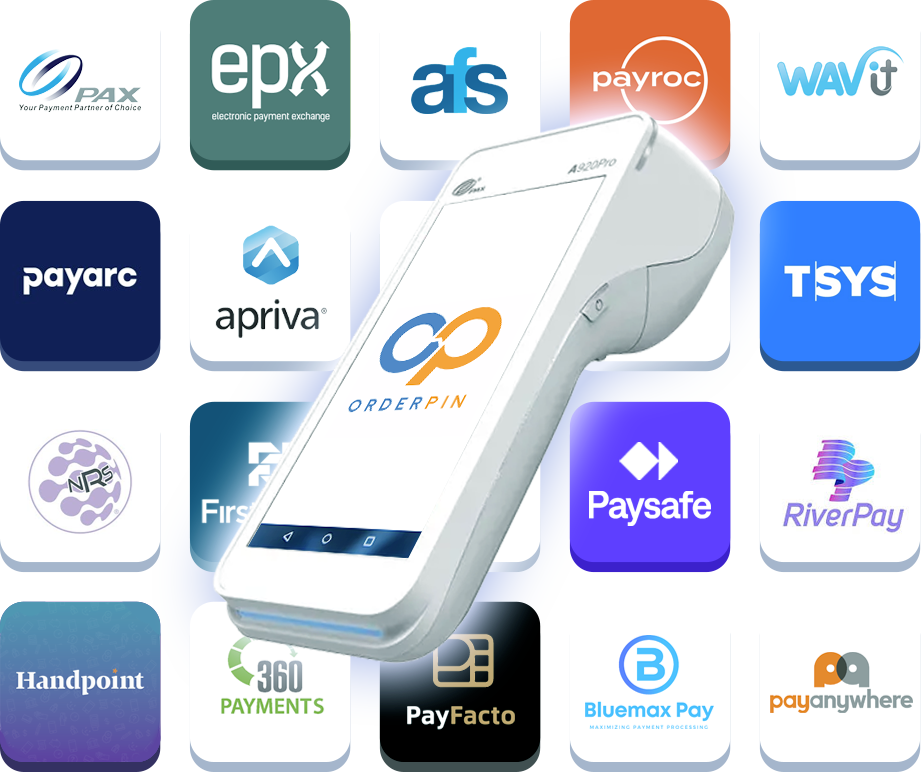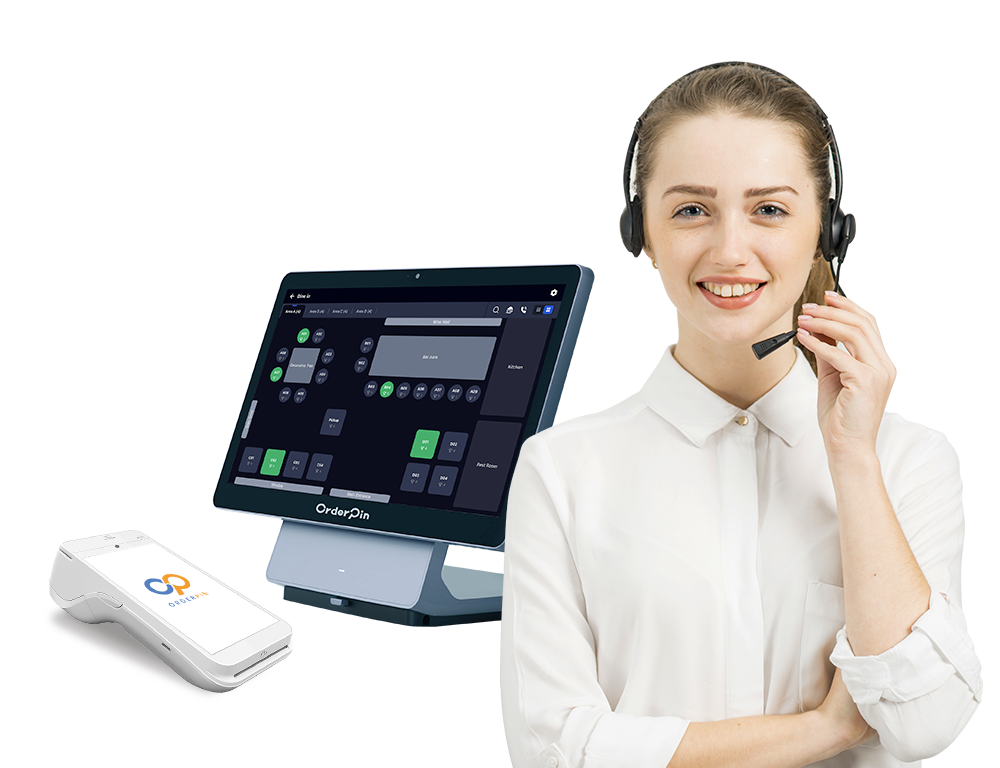RESTAURANT POS EXPERT ISV
We Take Care Of The Technical, You Take The Rest!
From accepting payment to organizing inventory (and so much more). Tailor-made for any type of restaurant, helps you increase revenue, streamline management, and run your business better with ease.
From Michelin restaurants to hundreds of outlets chain brands are using OrderPin!

4,000+
Restaurant Locations

10+
Countries Covered

130,000+
Orders Daily Processed
The most ideal POS you are looking for
Omni-Channel Ordering
Table side, Online, QR code, self-service Kiosk: Orders from omni-channels are seamlessly synced to OrderPin POS and delivered directly to the kitchen.
Tailoring the best model to fit your service type. Empowering your restaurants to increase order scale while reducing costs.


All-in-one POS
Works on the Web, Android, and iOS, and it’s compatible with tablets, Phones, terminals, kiosks, laptops, and so on devices.
Easy-to-use operation, beautiful interface, and polished functions, can newcomers learn to use a POS in 5 minutes? See how OrderPin makes you scream.
Full Integrations
With full integrations, OrderPin brings your restaurant business to a new level.
Hardware: Printers, CDS, KDS, cash drawer and so on
Payment processors: TSYS, FISERV, Global Payments, Stripe, Chase, Moneris and more
Payroll: 7 SHIFT, ADP and more
Giftcards: Valu Tech
Delivery: Ubereats, Deliverect, Grabfood, Talabat and more

Boost your restaurant with OrderPin!
Get support from experts who understand your unique business deeply. Personalize intelligence solutions for your restaurant with OrderPin all-in-one POS.

How OrderPin grows your business
Drive more sales with omni-channel ordering methods
Multiple ordering methods satisfy different types of customers. An intelligent and convenient order-to-checkout process improves the table turnover rate.
Cloud-based POS with rich features all you need
Automatically updating online regularly, never lags your restaurant behind in the development of the service industry.
Easy to use with an eyes-to-know interface
Significantly reduce staff training costs. Reduce the possibility of operational mistakes and improve restaurant operation efficiency.
Become a OrderPin partner, Level up your business!
OrderPin white label POS program is open to collaborate. Partner with us and build your brand, serving millions of restaurants to approach your success at the same time.

